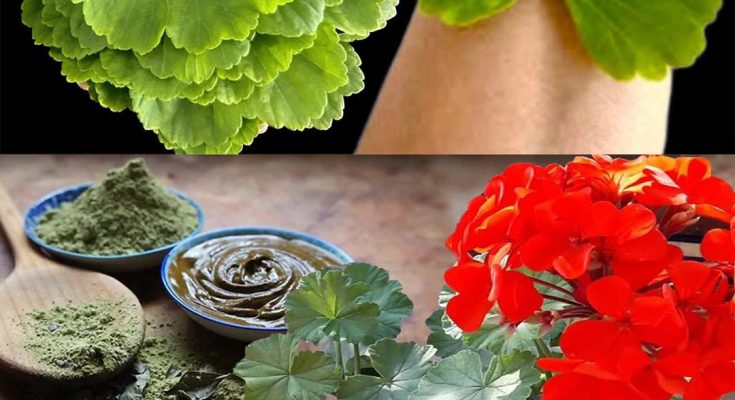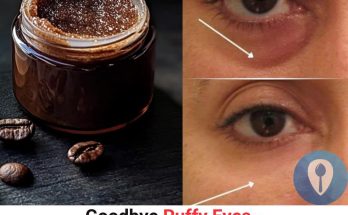Geranium plants are commonly admired for their beauty, but did you know that their leaves hold remarkable health benefits? These versatile leaves, with their antibacterial and antioxidant properties, have been used in natural remedies for centuries. Whether applied to the skin or used for general well-being, geranium leaves can be a powerful tool for your natural health regimen. In this article, we’ll explore not only how to make a geranium leaf mask but also how these leaves can benefit other parts of the body and improve overall health.
Key Benefits of Geranium Leaves
Geranium leaves are much more than a pretty plant. They have numerous benefits that can be harnessed in different ways to improve skin health, reduce inflammation, and even promote a restful sleep. Here are some key benefits:
- Anti-Acne and Skin Cleansing: Geranium leaves possess strong antibacterial properties, making them a fantastic natural solution for acne-prone skin. They cleanse the skin of impurities, fight bacteria that cause acne, and help to reduce inflammation.
- Antioxidant-Rich: Packed with antioxidants, geranium leaves help to protect the skin from damage caused by free radicals. These antioxidants also help slow down signs of aging, such as wrinkles and fine lines.
- Anti-inflammatory Properties: If you suffer from conditions like eczema, rosacea, or other inflammatory skin conditions, geranium leaves can provide relief. They help to reduce redness and swelling while soothing irritated skin.
- Regulation of Oil Production: Oily skin can be difficult to manage, but geranium leaves help balance oil production, ensuring that your skin doesn’t overproduce sebum, which can lead to clogged pores and breakouts.
- Wound Healing: The natural astringent properties of geranium leaves aid in speeding up the healing process of cuts, burns, and wounds by promoting blood clotting and tightening the skin.
- Pain Relief: The leaves can also be used to relieve pain, particularly in the case of muscle aches, joint pain, or minor earaches. When applied externally, they help reduce pain and inflammation.
- Boosts Immunity: When used in various applications, such as teas or topical treatments, geranium leaves can help boost the immune system, protecting you from infections and illnesses.
- Promotes Better Sleep: The calming scent of geranium leaves can help alleviate stress and anxiety, promoting better sleep when placed in bedrooms or used in pillow sachets.
- Repels Insects: Geranium leaves have a strong aroma that naturally repels insects. Keeping a few plants around your home or using the leaves in a natural bug spray can help keep mosquitoes and other pests away.
- Balances Hormones: For women, geranium leaves may help balance hormones, providing relief from PMS symptoms and menopause-related issues, such as mood swings and hot flashes.
How to Make and Use Geranium Leaf Mask
Let’s start with a practical recipe that can help treat acne, oily skin, and more. The geranium leaf mask is a simple yet effective remedy to enhance skin health.
Ingredients:
- 3 fresh geranium leaves
- 1 tablespoon plain yogurt (unsweetened)
Instructions:
- Clean the Leaves: Begin by picking 3 fresh geranium leaves. Wash them under cold water to remove any dirt or dust. After cleaning, allow the leaves to dry completely.
- Crush the Leaves: Use a mortar and pestle to crush the leaves until they release their natural juices and form a paste. This ensures that the beneficial compounds from the leaves are extracted.
- Mix with Yogurt: Transfer the crushed leaves into a small bowl and add 1 tablespoon of plain yogurt. Mix the ingredients thoroughly to create a smooth, even paste. Yogurt, with its lactic acid, adds an exfoliating effect to the mask, removing dead skin cells and brightening the complexion.
- Apply to Skin: Cleanse your face with a gentle cleanser and pat it dry. Then, apply the geranium leaf mask evenly over your face, avoiding the eye area. Focus on areas that are prone to acne or excess oil.
- Let It Sit: Allow the mask to dry for 20-30 minutes. The mask will work to detoxify your skin, remove impurities, and regulate oil production.
- Rinse and Moisturize: Rinse off the mask with lukewarm water and follow up with a toner and moisturizer for best results. Use this mask 2-3 times a week for clearer skin.
Other Uses of Geranium Leaves
Geranium leaves are not just for facial care. They can be used in various ways to benefit your body and overall health. Below are some additional uses:
For Earaches
Geranium leaves are excellent for relieving earaches. Simply clean a fresh leaf, roll it into a small ball, and place it gently in the outer part of the ear (do not insert it deep inside). Leave it there for a few hours, and you’ll feel relief from pain and discomfort. This remedy is especially helpful for ear infections and cold-induced earaches.
For Muscle Pain and Inflammation
Crushed geranium leaves can also be used as a topical treatment for sore muscles and joint pain. The anti-inflammatory properties of the leaves help to soothe the affected area, reducing pain and swelling. Apply the crushed leaves directly to the painful area and cover with a cloth for 30 minutes to an hour.
For Better Sleep
Place a few fresh geranium leaves under your pillow or near your bed. The calming aroma of the leaves helps relax your mind, easing anxiety and promoting better sleep. If you struggle with insomnia or restless nights, this natural method can help improve your sleep quality.
Insect Repellent
Geranium leaves are a great natural insect repellent. Rub the fresh leaves on your skin to keep mosquitoes and other bugs away. Alternatively, you can crush the leaves and place them around your home to repel insects.
In Homemade Skincare Products
Geranium leaves can be incorporated into other homemade skincare treatments. For example, you can infuse geranium leaves in oils to create an anti-aging face serum or mix them with witch hazel to make a refreshing toner that tightens pores and cleanses the skin.
Precautions and Disclaimer
While geranium leaves offer numerous benefits, it’s essential to ensure you’re not allergic to the plant before using it extensively. Always perform a patch test on a small area of your skin to check for any adverse reactions. If you have any pre-existing skin conditions or sensitive skin, consult a dermatologist before using natural remedies.
Disclaimer: This article is for informational purposes only. Always consult with a healthcare professional before starting any new treatment, especially if you have sensitive skin, allergies, or underlying health conditions.
Geranium leaves are a versatile, powerful plant with multiple benefits for both skincare and overall health. Whether you’re making a face mask to combat acne or using the leaves to soothe muscle pain, geranium leaves provide a natural alternative to chemical-laden products. Start incorporating these leaves into your daily routine and enjoy their numerous benefits!



